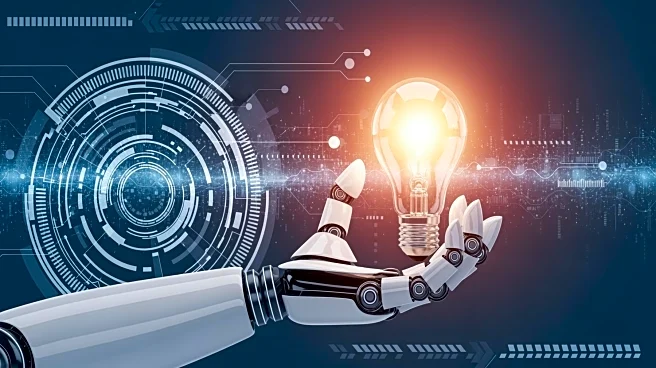What's Happening?
Goldman Sachs CEO David Solomon has addressed concerns about AI's impact on the job market, suggesting that while AI may disrupt certain sectors, the American workforce is adaptable and will evolve. Solomon compared the current AI boom to historical technological
advancements, such as the steam engine, which led to significant economic shifts. He emphasized the nimbleness of the U.S. economy in adapting to new technologies. Despite fears of job losses, Solomon believes AI will create new opportunities and industries, although the transition may be challenging for some workers.
Why It's Important?
Solomon's perspective highlights the ongoing debate about AI's role in the economy and its potential to reshape the labor market. While AI offers significant benefits, including increased efficiency and innovation, it also poses challenges, such as job displacement and economic inequality. Solomon's comments underscore the need for policymakers and businesses to address these issues proactively. The rapid adoption of AI technologies could lead to significant changes in employment patterns, requiring strategic planning to ensure a smooth transition for affected workers.
What's Next?
As AI continues to advance, companies and governments will need to develop strategies to manage its impact on the workforce. This may include investing in education and training programs to help workers transition to new roles. Policymakers will also need to consider regulations and policies to address potential ethical and economic concerns associated with AI. The industry will be closely monitoring AI's impact on various sectors and the broader economy.
Beyond the Headlines
The discussion around AI's impact on jobs raises important ethical and social considerations. As AI technologies become more prevalent, issues such as privacy, data security, and economic inequality will need to be addressed. The potential for an AI bubble also poses risks to the economy, requiring careful management to prevent market disruptions. Stakeholders must consider the long-term implications of AI's rapid advancement and work towards sustainable solutions.
















